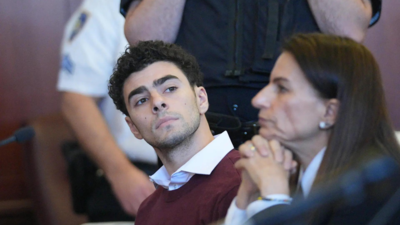British-Indian writer Gurwinder Bhogal has claimed that long before the shocking murder of UnitedHealthcare CEO Brian Thompson, he had a video call and a chat with accused Luigi Mangione around April-May when Mangione was vacationing in Japan.
Agency was a major concern of Luigi’s
The author described how Luigi Mangione reached out to him through membership of his blog and was warm and gregarious. Mangione told him that he was on holiday in Japan and loved the culture there — its sense of honor. “One morning in Japan, he saw a man having a seizure in the street, so he ran to the nearest police station for help. They followed him back to the man, but refused to cross any street if the stoplight was red—even if the road was empty—as the man was seizing on the ground. Mangione lamented what he called “a lack of free will” in Japan, by which he meant a lack of agency,” Bhogal described an anecdote from his interaction with Mangione.
“I quickly realised that agency was a major concern of Luigi’s,” the writer added.
“Luigi believed people everywhere were becoming NPCs (Non-player characters — people who don’t think for themselves), increasingly living their lives as a series of reflex reactions rather than consciously choosing their behaviours. The West was following closely behind Japan, driven by tech companies intent on mesmerising us into servile consumers. Luigi feared that once we’d surrendered our agency, we’d surrender everything else,” Bhogal wrote.
Mangione too identified as an NPC living much of his life on autopilot, he told the author recalling how he sometimes wasted whole afternoons doomscrolling social media. “He said he wanted to regain some of the agency he felt he’d lost to online distractions, so we spent much of the chat discussing ways he could become more active,” the writer wrote adding that he thought Mangione was someone who had a desire to help even those whom he didn’t know.
‘I was sickened. Vigilantism is always wrong’
The writer then described how he withdrew himself from social media and didn’t notice that Mangione vanished and then came the murder and the social media glorification of the alleged murderer. “If you celebrate someone gunning down a defenseless person in the street, then you advocate for a world in which this is an acceptable thing for anyone to do. You, in fact, advocate for a world in which a stranger can decide that you’re also a bad person, and gun you down in the street. In such a world, I promise you, your health insurance would cost much more,” Bhogal wrote.
‘I didn’t know he had spinal or mental issues’
The writer said that in his limited interactions with Mangione, he never got the impression he had spinal or mental issues. “But I did get the sense he felt alienated. He often decried the lack of social connection in the modern world, and on a couple of occasions, he lamented that the people around him were ‘on a different wavelength’ to him,” he wrote.


